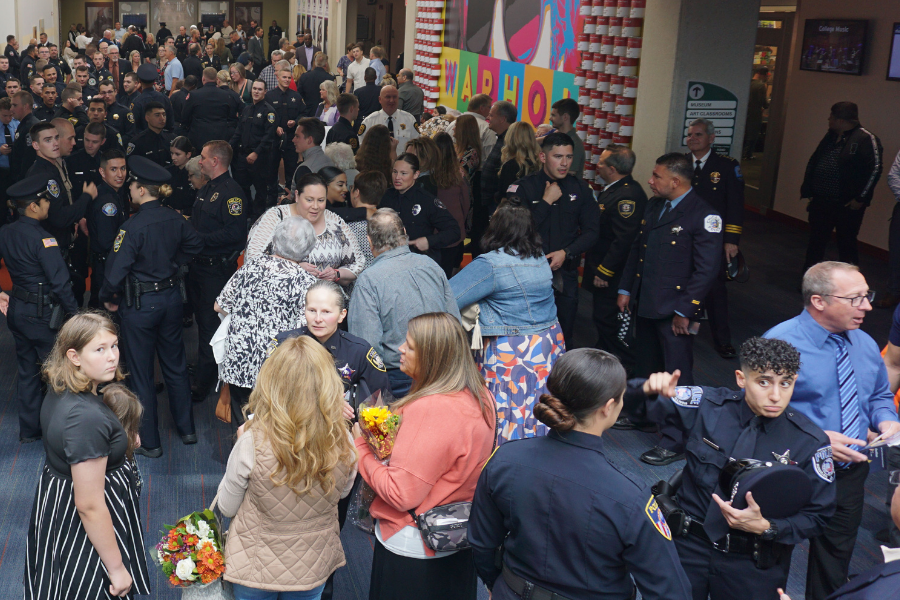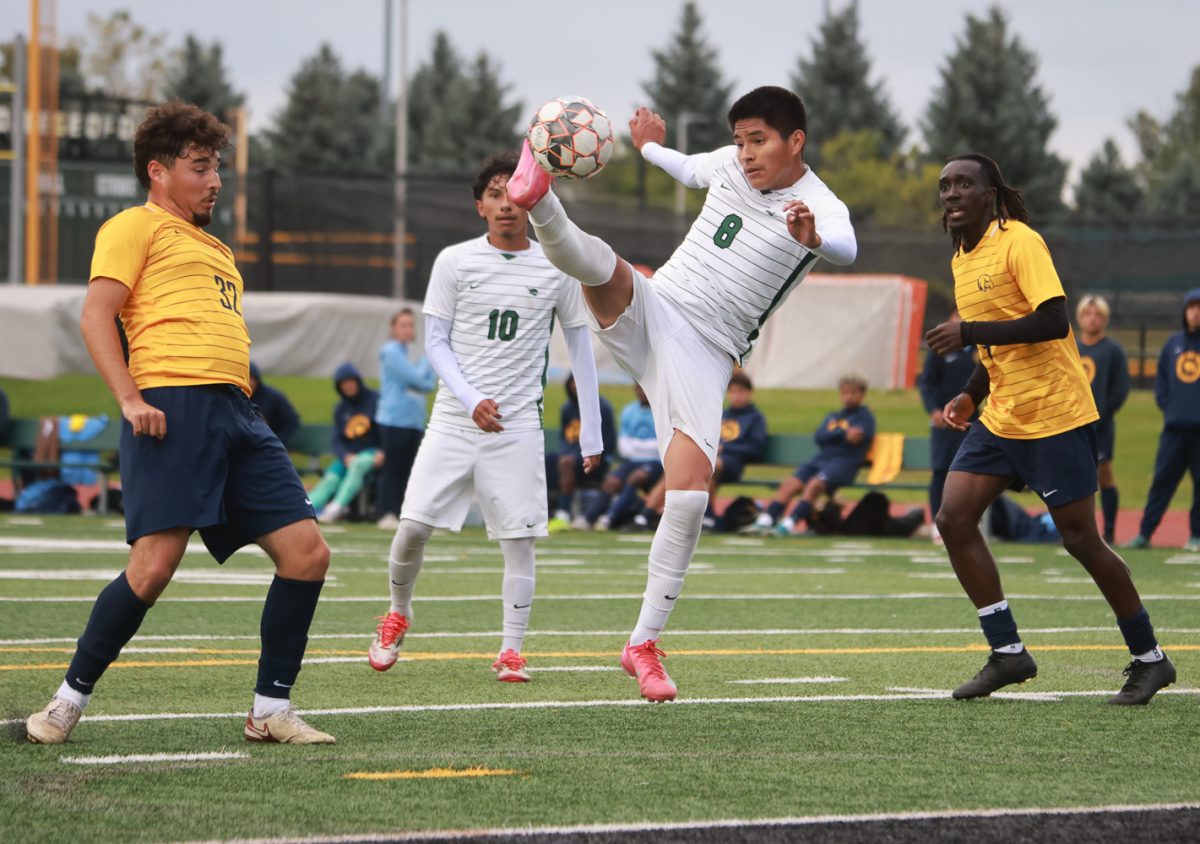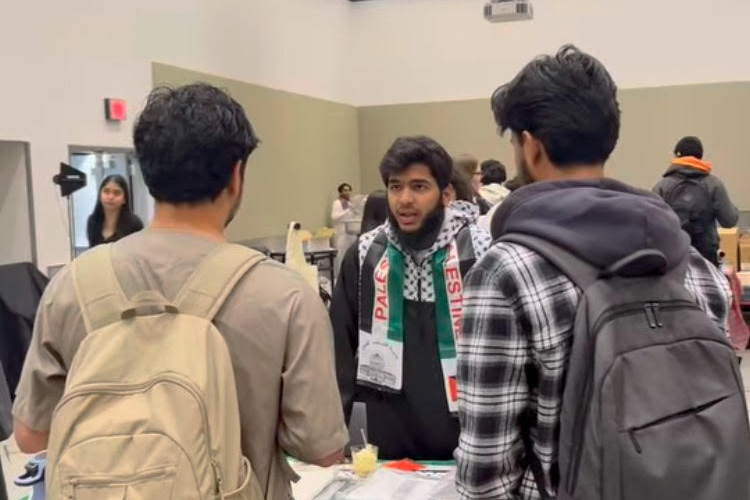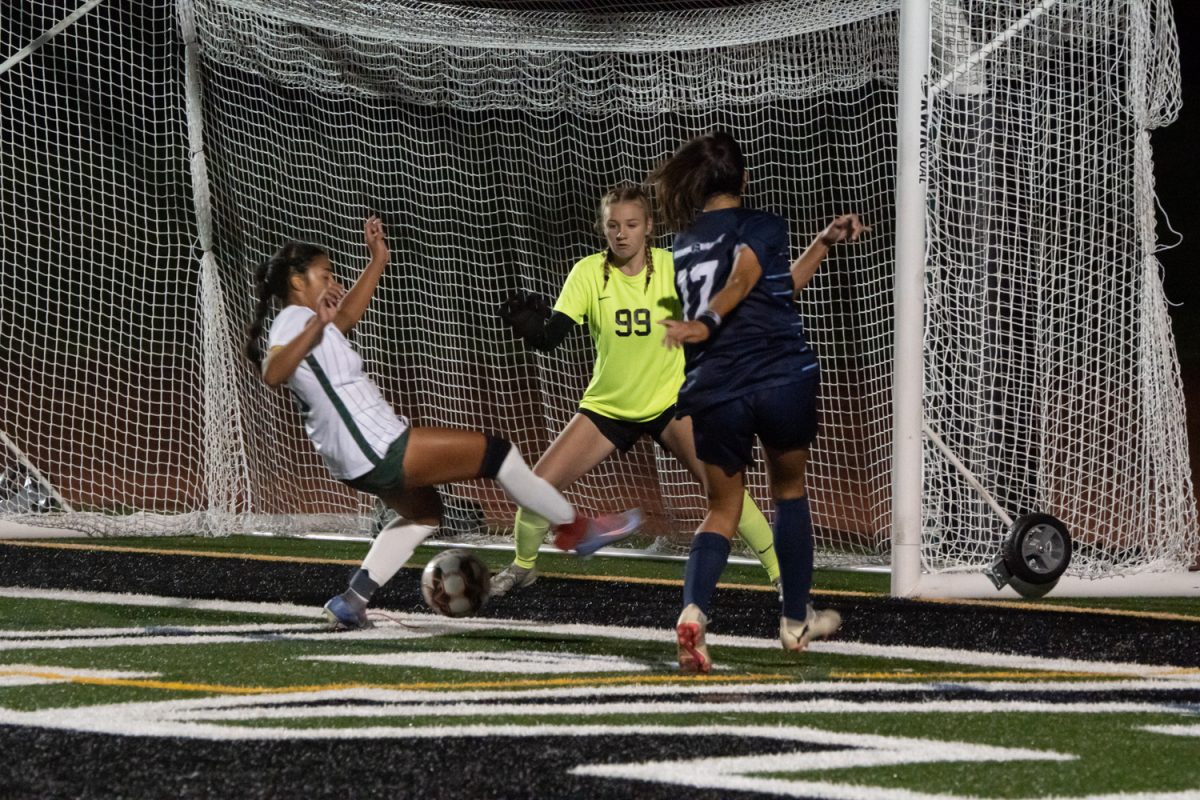Stories from the Newest Graduates of the Suburban Law Enforcement Academy
Graduation day for class BA 23-01 of the Suburban Law Enforcement Academy culminated their hard work and ambitions of the past 14 weeks.
The crowd of police, family, and faculty gathered for class BA 23-01’s graduation ceremony on Friday, Sept. 23.
September 26, 2022
Outside COD’s Belushi Theater, the crowd was thick with police officers from departments across the Chicagoland area, as well as proud family members and faculty. In the center stood the 61 graduating officers of the Suburban Law Enforcement Academy’s class BA 23-01. The newly minted officers exchanged excited conversation and helped each other get “squared away” or fix their uniforms before they walked on stage. They grouped in formation for one last time at their graduation ceremony on the afternoon of Friday, Sept. 23.
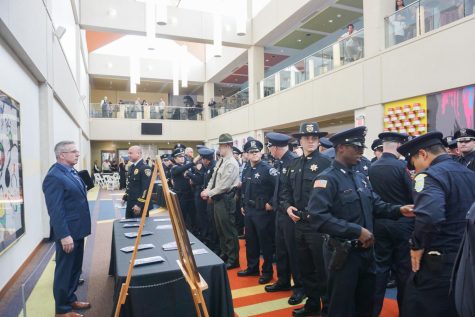
BA 23-01’s class motto was “Earn the Honor.” In an interview on Aug. 4 with five recruits, they described how they wrote words on a classroom board to describe what their training and ambitions in the law enforcement field means to them. The motto describes how they must work hard to earn the honor of becoming an officer and properly serving the community.
This is one of the main characteristics that defines the recruits training, as described by Jean Claude Chassagne, who was BA 23-01’s Drill and Ceremony recruit. He mentioned how at the beginning of their training in late June, the new recruits were disorganized and overwhelmed. By week seven out of fourteen, when they were interviewed, they were impressed by the newfound discipline and connection between them. The evidence of it showed on graduation day, as they moved in unity when Officer Chassagne ordered them to stand and face left for the national anthem.

“You have to be in sync and looking out for the people on your right and left.” Chassagne described. This discipline and cooperation is especially important to succeed in the rigorous training modules.
There’s the Defensive Tactics module, where recruits physically spar with each other, the morning Spirit Run around the HEC and the 40-hour Crisis Intervention Team training.
“They’ll try to break you in training, and if one person makes a mistake, everyone is punished,” Chassagne warned.
The other recruits mentioned how some people did not make it through the weeks of training. It may seem too challenging, but it’s an exercise of the recruits’ inter-regulation.
With 61 recruits in all, they need qualified leaders to guide them. Ranks such as president, vice president, and squad leaders, exist to manage smaller squad units. These recruits are elected by their classmates early in training.
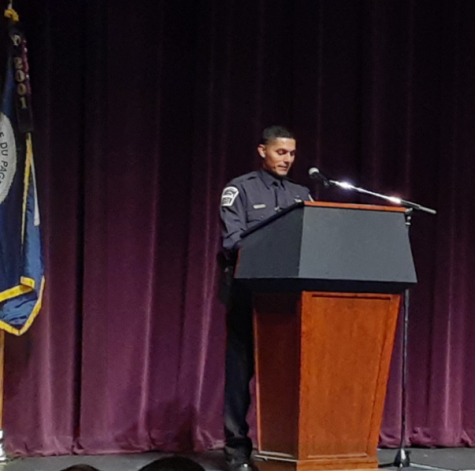
Class President Ramon Garcia said recruits are hired to police departments as a prerequisite before coming to the academy for basic training. Not every recruit, including Garcia, took a direct route into policing.
“I was working in construction before. It paid well, but my real passion was to work in law enforcement.”
At BA 23-01’s graduation, Garcia was awarded the Raymond Murrell Leadership award. This is a memorial for a SLEA graduate, Officer Murrell, who died in the line of duty in 2017. It is awarded to the recruit who exemplifies the best leadership skills in the class. After accepting the award, Garcia proudly gave a speech celebrating the achievements of his classmates. They had shared months of hard work and training, even though they arrived at the SLEA from many differing backgrounds and career goals.
One such path was described by a squad leader of BA 23-01, Brooke Annerino. She said, “I was in the Coast Guard before. I always wanted to be in a job that kept me active, instead of in an office.”
A testament to her fitness skills, Officer Annerino was awarded the Physical Fitness award in BA 23-01’s graduation ceremony.
Chassagne similarly mentioned that he was a Marine before coming to the SLEA. He was particularly drawn to the field because of his family’s past in Haiti. They lived during a time of great political upheaval and conflict in Haiti, so much so that his father fled from the country. He described how this instilled a need for order and public safety in his career goals. Now he hopes to support and inspire his own son, as he continues his career with the West Chicago Police Department.
Katelyn Huber, who was also a squad leader of BA 23-01, commented that one motivation for her to pursue law enforcement was to be a role model. She wanted to show her niece that women can have great achievements in even the most demanding careers.
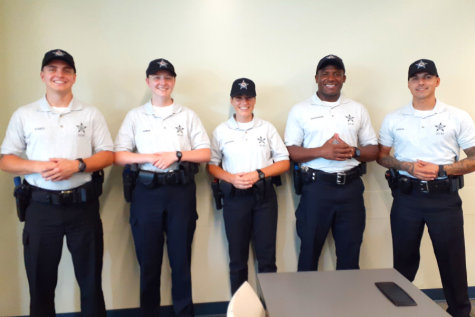
The vice president of BA 23-01, John D’Arcy, was originally interested in becoming a pilot before transitioning to the law enforcement field through the example of his family members. He described influential experiences like “going on ride-alongs with my brother who’s an officer.” On his graduation from SLEA, his elder brother, Chris D’Arcy, gave him the certificate on stage, bringing his journey into law enforcement full circle.
It is a variety of life experiences like these which instilled their passion for working in law enforcement. Their aspirations may be echoed by prospective academy recruits. There is no one path to law enforcement, which the recruits of class BA 23-01 especially emphasized in their interviews.
Huber mentioned she majored in business, as well as criminal justice.
“You don’t need to major in criminal justice. It’s good to have a backup plan if you find that law enforcement isn’t the right fit for you.” It’s also beneficial so officers can bring different skill sets and perspectives to the field, she said.
This is emphasized in the SLEA’s Mission Statement itself, “SLEA recognizes the need to continually build the capabilities of law enforcement to keep pace with ongoing and ever-changing societal needs and the challenges inherent in public service.”
During the graduation ceremony, SLEA Director James F. Volpe announced that in January 2023, the SLEA training will move up to 16 weeks. It will “add 80 additional hours of training that we feel will better prepare our recruits to serve their communities.”
Some of the police officers of BA 23-01 started on their first day in the field, on the Sunday right after graduation. They put into action everything they learned in the past 14 weeks.



